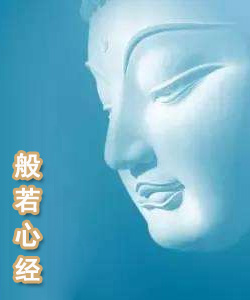金刚经全文在线阅览(英文)(6)
金刚经全文英文第二十一品:非说所说分 (WHAT IS SPOKEN IS NOT SPOKEN, TWENTY-ONE)
“'Subhuti, do not say that the Tathagata thinks:
“‘I must expound the Dharma.’
“Do not have such a thought.
“Why?
“Because if someone says so, he will really slander the Buddha and be unable to understand my teaching.
“Subhuti, when (the Tathagata) expounds the Dharma, there is really no Dharma to teach: but this is (expediently) called teaching the Dharma.”
Then the wise Subhuti said to the Buddha:
“World Honoured One, will there be in future ages living beings who will
believe this Dharma when they hear it?”
The Buddha said:
“Subhuti, the living beings (you just mentioned) are neither living nor not living beings.
“Why?
“Because, Subhuti, the Tathagata says these living beings are not (really), but they are (expediently), called living beings.”
金刚经全文英文第二十二品:无法可得分 (NO DHARMA CAN BE OBTAINED, TWENTY-TWO)
Subhuti said to the Buddha:
“World Honored One,
“does your (own) attainment of Supreme Enlightenment (Anuttara-samyak-
sambodhi) mean that you have not gained anything whatsoever?”
The Buddha replied: “Just so, Subhuti, just so,
“I have not gained even the least Dharma from Supreme enlightenment,
“and this is called Supreme Enlightenment.
金刚经全文英文第二十三品:净心行善分 (A PURE MIND DOES WHOLESOME DEEDS, TWENTY-THREE)
“Furthermore, Subhuti,
“this Dharma is universal and impartial;
“wherefore it is called Supreme Enlightenment.
“The practice of all good virtues (Dharmas), free from attachment to an ego,
a personality, a being and a life,
“will result in the attainment of Supreme Enlightenment.
“Subhuti, the so-called good virtues (Dharmas),
“the Tathagata says, are not good, but are (expediently) called good virtues.
金刚经全文英文第二十四品:福智无比分 (BLESSINGS AND WISDOM BEYOND COMPARE, TWENTY-FOUR)
“Subhuti, if (on the one hand) a man, in his practice of charity (dana) gives away the seven treasures piled up in a heap as great as all the Mounts Sumeru in the Universe put together,
“and (on the other hand) another man receives, holds (in mind) reads and recites even a four-line stanza of this Prajna-paramita Sutra, and expounds it to others,
“the merit resulting from the former's dana will not be worth one-hundredth, one-thousandth, one-ten-thousandth and one-hundred thousandth part of that obtained by the latter, as no conceivable comparison can be made between the two.
相关文章:




